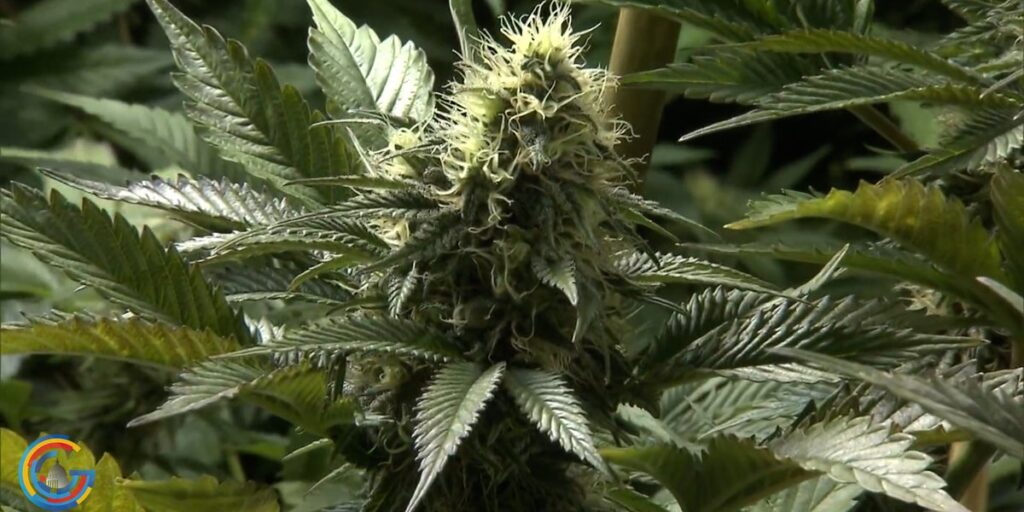WASHINGTON (Gray DC) – A bipartisan group of Representatives are rallying support for a bill that would allow Veterans Affairs doctors more flexibility in discussing the issue of medical marijuana with their patients. Currently, veterans who want to consider using medical marijuana can’t rely on doctors at the VA to give them recommendations, opinions, or even help them to fill out paperwork
Rep. Earl Blumenauer (D-Ore.), who first introduced the bill, has teamed up with Rep. Brian Mast (R-Fla.) to reintroduce and pass the Veterans Equal Access Act. The lawmakers said the act would provide “equal access to state-legal medical marijuana for veterans participating in VA healthcare by ending the harmful VA prohibition on doctors and healthcare providers giving opinions or recommendations on or completing forms for state-legal medical marijuana programs.” They add, the bill would not cost the VA any additional money.
“This legislation would enable the VA doctors who know veterans the best to be able to have frank conversations, give them advice and counseling. They shouldn’t have to leave their primary care doctor out of their own pocket. Try and find somebody. It’s better to have the medical professionals that know them best. And I have no doubt when our legislation is passed that the VA will embrace it,” said Rep. Blumenauer.
Although 37 states have legalized medical marijuana, VA doctors cannot recommend or prescribe medical marijuana because the VA is a federal facility. Federally, marijuana remains illegal in any form. In a statement, a VA spokesperson said, “while we are unable to discuss pending legislation, prescribing marijuana is illegal under federal law, therefore, VA is unable to prescribe it. We remain committed to improving treatment options for Veterans and support research into potential treatment options that may prove valuable. While federal law restricts VA’s ability to conduct research with Schedule I controlled substances, we are conducting research within our legal rights. This involves collaboration with a number of federal entities, including the FDA, NIDA, and DEA.”
For Rep. Mast the issue is personal. Prior to his election in Congress, he served more than 12 years in the U.S. Army. While deployed in Afghanistan, the bomb disposal expert was injured when an improvised explosive device went off. He remembers waking up at Walter Reed Medical Center where he was treated with multiple medicines. He believes it’s imperative that veterans know all of their treatment options. He’s also raising concerns over the potential for veterans to rely on opioids.
“If we can make a difference by allowing members of the military, veterans of the military, who have any kind of pain to help deal with that in a way other than the narcotics that they were pouring into us, then we are doing something damn good,” said Mast.
Rep. Blumenauer believes this is the year the bill can pass because it has bipartisan support. However, Republican members of Congress have voted against other cannabis legislation in the past. Washington News Bureau reporter Jamie Bittner asked Rep. Mast what conversations he’s been having with his fellow Republicans to ensure they vote for the measure. Mast said he believes many Republicans will support the bill because he believes it’s a states rights issue.
“You were having this argument six months ago or a year ago about states rights. This is the pinnacle of states rights. It’s really the tip of the spear of states rights where you can see every state dealing and grappling with this issue. What do they want to do with it? What do they want to ignore about federal law and move their own policy forward? So respect that and be intellectually honest about it. And that’s the conversation that I have with any colleagues that have questions about the issue,” he said.
Democrat Rep. Blumenauer added, “I think, in fairness, the number of Republicans, regardless of how they feel about legalization or other reforms, when the question was put to them, should veterans have equal access to other people in their state to be able to discuss medical cannabis with their primary care doctor, I find there’s not that much debate. People should not have to move away from the people who care for them in the V.A. to be able to get what could be a life altering therapy.”
The measure is supported by multiple veterans organizations, including the Veterans Of Foreign Wars (VFW).
“It’s the incongruent nature of the state laws versus federal laws,” said Brittany Dymond of the VFW. “If a veteran is taking it (marijuana) and maybe not in the health care system already, that presents a barrier because we know that there’s that separation between who might live physically in a state where it’s where it’s been legalized for medical purposes, for example. But, if we have to go to a federal facility where it’s still not not legal, that presents a conflict there and hesitancy.”
Dymond added the “Veterans Equal Access” bill, “would break down that barrier to enable them to simply discuss the option. So right now, if I go to VA, I would not be able to talk to speak with my provider about medical cannabis as an option to manage, you know, A, B, C, condition that I might have. The options just not there. And so what this would do is it would enable those conversations to have a more holistic discussion of veterans’ health and potential treatment options. And it would enable those providers to start providing documentation that’s generally required for anyone to participate in state level medical cannabis programs.”
H/T: www.graydc.com



